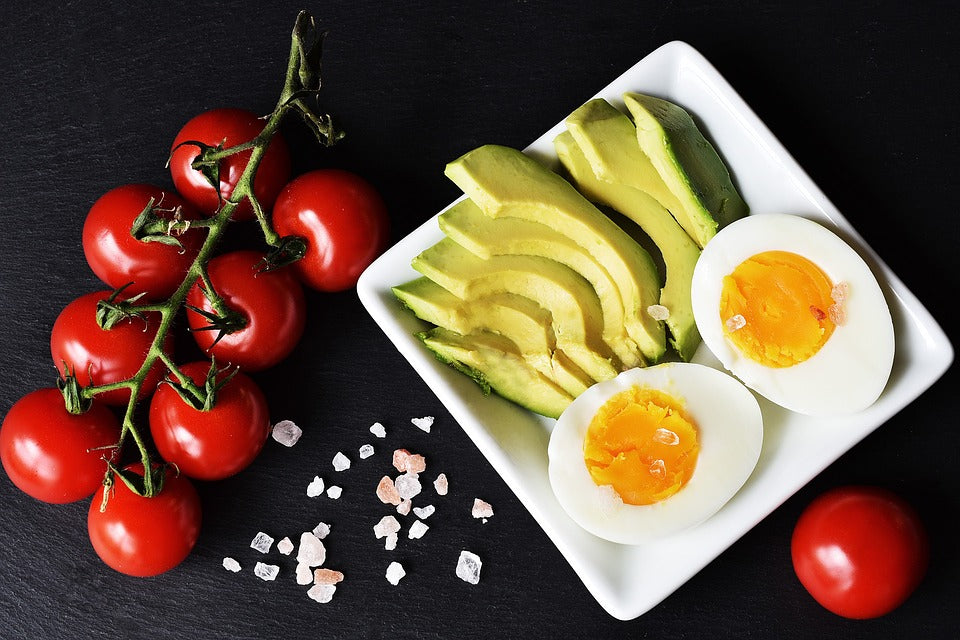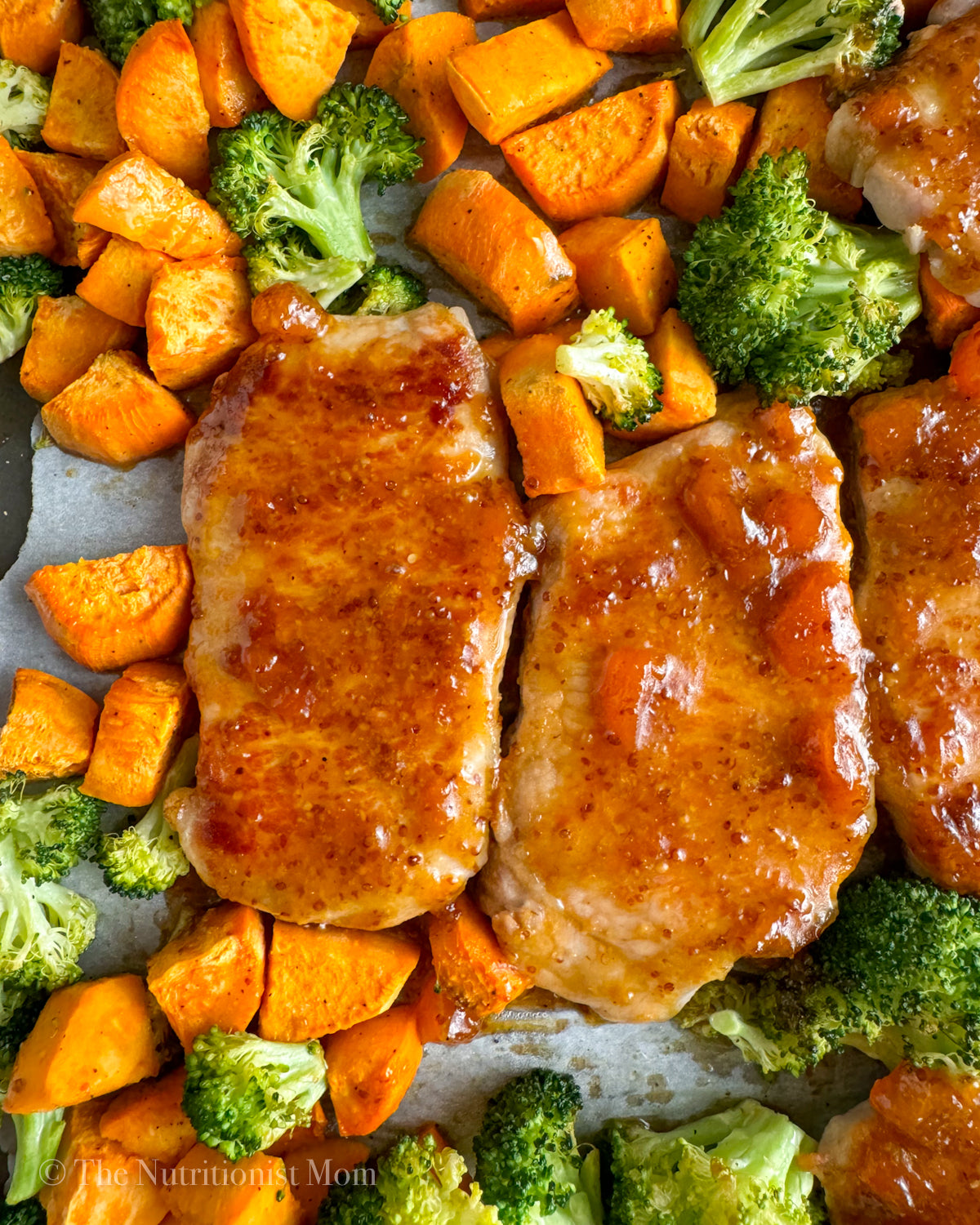EVERYTHING YOU NEED TO KNOW ABOUT THE KETO DIET

The keto diet is all the rage recently, but it’s actually been around for almost a hundred years! It was first used as a medical diet therapy in the 1920’s, and has been utilized as a weight loss strategy over the last 15 years or so.
What exactly is keto?
“Keto” is short for ketosis, the metabolic state of burning fats (in the form of ketones) instead of carbohydrates (in the form of glucose). Ketones are produced by the liver as an alternative fuel to glucose whenever carbs are insufficient to meet energy needs. Once ketones reach a certain level in the blood, it’s called “ketosis.”

Ketosis is a metabolic state that can occur with a very low carb diet, during prolonged exercise, or after 24 hours of fasting. Ketosis also happens with diabetics, who despite consuming carbs, cannot use them properly due to insulin deficiency.
Ketosis is not the same as ketoacidosis, a life-threatening condition that arises when ketones build up faster than they can be utilized by the body. This condition only develops in extreme circumstances where the body is unable to maintain normal blood sugar (such as alcoholism, starvation, diabetes).
The liver synthesizes ketones from dietary fats as well as body fat. Virtually all tissues that metabolize glucose can utilize ketones, with the exception of the liver (ironically), and the brain, which needs at least some glucose in addition to ketones. The surprising fact is, even in ketosis, your body is still making glucose from constituents of protein and fats (a process called “gluconeogenesis”) for use by the muscle, liver, and brain.1

What are the benefits of keto?
One of the biggest benefits of ketosis is that your body is almost completely reliant on fats for energy. When you eat fewer calories than you burn, part of this energy supply comes from body fat, resulting in weight loss and reduced body fat. Some research indicates that following a keto diet could result in greater long-term fat loss than a low-fat diet.2 This is thought to be due to increased fat burning, reduced propensity to store fat, and the increased calorie “expense” of breaking protein down for energy. Keto also suppresses appetite, which can make it easier to stick to a calorie deficit and lose weight.3
It’s worth mentioning that a low-carb, non-ketogenic diet is equally effective at reducing body fat and improving insulin sensitivity when compared to a ketogenic diet.4
From a heart health standpoint, the keto diet may be superior to a low-fat diet for reducing blood pressure, lowering blood triglycerides, and increasing HDL cholesterol (the kind that reduces fatty plaques in the arteries).3 Although the keto diet has been shown to increase undesirable LDL cholesterol, the LDL particles become larger and less likely to stick to the arteries.3 Long-term, the keto diet appears beneficial for those with high cholesterol.5
Keto also seems to be a useful tool for reducing inflammation and improving markers of metabolic syndrome, insulin resistance, and type 2 diabetes (all diseases of carbohydrate intolerance).3 The ketogenic diet is currently being implemented as a treatment for acne, cancer, tumors, PCOS, Alzheimer’s, Parkinson’s, epilepsy, seizures, respiratory issues, and more.3,6

Are there any drawbacks or dangers with keto?
The most obvious drawback is you won’t be getting a lot of micronutrients from fruits and vegetables. This can be mitigated by a high-quality, well-rounded multivitamin and multi-mineral supplement, in addition to a greens powder.
It’s also easy to consume an excessive amount of red meats, processed meats, and animal fats on the keto diet, all of which have been linked to increased risk of death, particularly from heart disease and cancer.7
You also have to be careful to limit inflammatory fats such as grapeseed oil, soybean oil, safflower oil, sunflower oil, and partially-hydrogenated oils found in margarine. Fats like these are high in omega-6 and have been shown to promote systemic inflammation, heart disease, insulin resistance, and obesity.8 On the other hand, anti-inflammatory fats such as fatty fish, olive oil, flaxseed oil, and monounsaturated fats like nuts and avocados can help reduce inflammation, promote cardiovascular health, and improve insulin resistance.
Inadequate fiber can also be an issue with the keto diet… leading to digestive issues such as diarrhea, constipation, and compromised gut bacteria. Compromised gut flora have been linked to allergies, food intolerances, compromised immune function, and leaky gut. That said, it’s not impossible to get the recommended 25 grams of fiber on a keto diet, as long as you’re choosing low-calorie, high-fiber vegetables (cauliflower, celery, greens, lettuce, broccoli and eggplant). A normal amount of fiber will not kick you out of ketosis, since fiber doesn’t contribute much in terms of energy. Most people can stay in ketosis at 50 grams of carbs daily, with 25 grams coming from fiber (equal to 25 grams of net carbs).

You may notice poor training performance on the keto diet, particularly with high-intensity workouts, at least until you’re “keto-adapted” about a month into the diet. A recent study showed a 7% loss of power and 15% loss of endurance for athletes placed a keto diet four days prior to the test.8 A different study found that “keto-adapted” athletes actually performed better on sprint tests compared to the high-carb athletes.10 Yet another study put athletes on a keto diet and found no difference in strength or power performance when testing vertical jump, 1RM bench press and back squat, maximum-repetition bench press, and a 30-second cycling test.11 Individual performance may depend on how well the person is keto-adapted, but either way, keto isn’t going to completely ruin your workouts. In fact, training for endurance on very low carbs improves endurance and race times once carbs are added back.12
Losing muscle is another worry, particularly among the bodybuilding community. However, a recent study of strength-training men showed an increase in lean mass following a keto diet compared to a high-carbohydrate diet with the same protein content and training regime.13 Overall, there aren’t any jaw-dropping benefits nor adverse effects in terms of lean muscle mass following a keto diet.14-15

Some have expressed concern that following the keto diet long-term causes poor carb tolerance otherwise healthy adults. There is little research, but the phenomenon appears to be only a temporary consequence of being “fat-adapted” versus “carb-adapted.” Keto dieters who gradually increase carbs seem to have no issue tolerating them in the long run. Just don’t try to jump into the “300 carb club” post-keto or you’re in for trouble!
A more serious claim is that the keto diet causes fatty liver (mostly YouTube health “gurus”). Ketogenic diets have actually been used to slow the progression of non-alcoholic fatty liver disease (NAFLD),16 though it’s not a cure. I still wouldn’t recommend trying the keto diet if you have a history of liver disease, at least without your doctor’s go-ahead.
Another misconception is that ketogenic diets cause gallstones and even gallbladder removal. In fact, cholesterol and healthy fats promote bile production and flush the gallbladder of stagnant bile, helping prevent stones. Multiple studies have shown that low-carb, high-fat diets are actually beneficial for gallbladder health.17

Long-term keto diets in children have been shown to increase the risk of kidney stones.18 On the other hand, recent findings in adult studies suggest keto-like diets may instead be beneficial chronic kidney disease.19 If you suffer from kidney disease or have in the past, PLEASE do not prescribe yourself dietary intervention without first speaking to your doctor.
Bone loss and stunted growth have also been measured in children who followed the keto diet long term. This is thought to be the result of sub-clinical acidosis and suppressed growth hormone (IGF-1).20 However, research in adult women showed no effect on bone density.21
How do I get into ketosis and how will I know?
Now that we’ve covered all the bases, you may be wondering – how does one get into ketosis? Well, the faster you deplete your body’s glycogen stores (carbs stored in the muscle and liver), the faster you will get into ketosis. The average person stores about 2,000 calories or roughly 500 grams of glycogen between their muscle (350-500g) and liver (100g) stores.
There are multiple ways to deplete glycogen, but first and foremost is restricting carbohydrate intake to less than 50 grams per day with at least 25 grams coming from fiber. You may have to consume less than 30 grams of carbs per day to reach ketosis if you’re getting very little fiber.
Since your liver can make glucose from excess amino acids, you must also restrict protein intake (including amino acid supplements) to 20- 25% of total calories (30% if restricting calories for weight loss). With this diet protocol alone and no exercise, you should be in ketosis within 4-5 days.
You can accelerate the path to ketosis with intense full-body workouts, HIIT cardio, and heavy lifting to failure. All of these will deplete glycogen in both the muscle and the liver. High-intensity exercise burns up to 65% of calories from carbs, whereas low-intensity exercise burns 40% or less from carbs (at least until you’re carb-depleted, then everything shifts toward fat-burning). Four hours of moderate-high intensity exercise can deplete glycogen sufficiently for ketosis. So, if you followed a very low carb diet plus two hours of moderate-intense exercise each day, you could be in ketosis as quickly as 48 hours.
Now, the absolute quickest way to get into ketosis is fasting for 24 hours. You can drink water, black coffee, or consume anything with almost no calories. It sucks, but will get the job done much sooner.
The most accurate way to test whether you’re in ketosis is using a blood ketone meter that pricks your finger. If that sounds unpleasant, you can use urine keto strips or a keto breathalyzer, though less reliable. A super easy way to tell you’re in ketosis is having “fruity” bad breath (you’ll want to brush your teeth several times per day or chew sugar-free gum).

Do I need any special supplements?
Besides a good quality multivitamin/multi-mineral, there are a few other supplements that can make keto healthier as well as more enjoyable.
Getting adequate electrolytes (sodium, potassium, magnesium, and calcium) helps counteract the loss of water and minerals due to ketosis. Electrolytes are also vital for nerve function, muscle contraction, hydration, and many other metabolic reactions in the body. Aim for at least 1,500mg sodium per day (more if sweating a lot), 300-400mg of supplemented magnesium daily, 4,000-5,000mg of potassium from foods (nuts, avocados, salmon, leafy greens, broccoli, mushrooms), and 1,000mg calcium from foods (dairy, sardines, almonds, seeds, and leafy greens).22 If you don’t think you’re getting enough potassium and calcium from your diet, add an electrolyte drink during your workouts.
To avoid digestive issues, I recommend a good probiotic (capsules, powder, or live cultures) and prebiotic fiber supplement (such as psyllium husk capsules). In addition, if you’re not getting three cups of low carb veggies in per day, a greens supplement may help replace the micronutrients and antioxidants you’re missing. Look for one with spirulina, which has been shown to reduce total blood cholesterol, LDL cholesterol, and triglycerides while increasing HDL cholesterol (the good kind).23
MCT oil and coconut oil are excellent sources of medium-chain triglycerides (fats) that readily metabolize into energy and promote ketosis. Both can help improve energy levels while on the keto diet. The difference between coconut oil and MCT oil is the amount of caprylic acid, a fatty acid that provides almost instantaneous energy and is preferred by the brain. Coconut oil has almost no caprylic acid, so this is where MCT oil really shines.

Supplementing with exogenous ketones makes it easier to get high levels of ketones in your blood and enter ketosis faster, but they reduce the need to make ketones from your own body fat. One of the main reasons keto works for weight loss is because synthesizing ketones burns a lot of calories – consuming exogenous ketones does not.24 Other benefits of exogenous ketones, such as appetite suppression and lowered blood sugar, can be achieved with diet-induced ketosis. That said, if you’re really struggling with your workouts or feeling overly exhausted during initiation into the diet, exogenous ketones can give you a little boost.
What should I expect?
The keto diet is pretty rough at first. For the first week (or weeks), you will probably experience fatigue and trouble focusing as your body adapts to the lack of carbs. It’s fairly common to have headaches as your brain switches to ketones for fuel, digestive issues as your gut adjusts to the high fat intake, and diminished training performance due to depleted muscle glycogen. Don’t be surprised if you have insomnia either – carbs aid sleep by increasing serotonin and tryptophan levels. Melatonin is an effective natural sleep aid, and I’ve mentioned several supplements in the previous segment to relieve other side effects. On the plus side, you could lose as much as 5-10 pounds (mostly water) the first week, which can be motivating!

Once you’re in full ketosis, you may notice fruity bad breath or “sweet-smelling” pee, which are sure signs that ketone levels are high. You should also start to feel less hungry, as ketones suppress appetite hormones and stabilize blood sugar. Dry mouth and constant thirst are also common, due to a loss of water and electrolytes. Many keto dieters report improved focus and mental clarity, likely a combination of level blood sugar and heightened cortisol levels (the “fight or flight” hormone).
About a month into the diet, you should be feeling pretty energetic (assuming your calories aren’t too low), and begin to perform better in the gym. On the downside, you may start to miss some of those high-carb comfort foods, or become weary of saying “no thank you” to various offerings at social gatherings. This is where keto-friendly recipes and a good support system can make all the difference.
If you choose to drink alcohol during keto, just exercise moderation and choose drinks that are low in carbs (dry wine, certain beers, straight liquor). This won’t kick you out of ketosis, as a matter of fact it can actually push you further into ketosis, even dangerously so. Since alcohol is toxic, it’s metabolized first priority over ketones and other nutrients. Fats and carbs are stored under these circumstances, but ketones cannot be stored so they build up in the blood before being eliminated in your urine. Be careful – drinking in ketosis makes you drunk quicker and way more hungover!
How long should I follow the keto diet?
Because it has been in use for nearly a century, the keto diet has had sufficient time to demonstrate long-term benefits in those who maintain it, and persisting benefits even in those who discontinue it.25 That said, if you don’t require a ketogenic diet for medical reasons, you may decide to shift into a different nutritional approach you reach your goals.
Some experts recommend transitioning into a high-fiber “cyclical” keto diet with targeted higher carb days (100-150g) for hormone balancing and muscle growth.26 Other health authorities suggest a Mediterranean, Atkins, low-glycemic or Paleo-style diet for weight maintenance post-keto. Personally, after two years on keto, I prefer higher carbs and intuitive eating for weight maintenance. It’s helped me put on muscle, avoid fat gain, all with enough flexibility to enjoy life. Feel free to experiment and find what’s best for you!
If you have any questions, feel free to comment below.
No part of this article may be reproduced, copied, modified or adapted, without written permission from Sarah Wilkins. Violation is subject to prosecution by copyright law, and punishable by up to 5 years in Federal prison and a fine up to $250,000.
SOURCES:
- Volek, Jeff S., et al. “Metabolic Characteristics of Keto-Adapted Ultra-Endurance Runners.” Metabolism, vol. 65, no. 3, 2016, pp. 100–110., doi:10.1016/j.metabol.2015.10.028.
- Bueno, Nassib Bezerra, et al. “Very-Low-Carbohydrate Ketogenic Diet v. Low-Fat Diet for Long-Term Weight Loss: a Meta-Analysis of Randomised Controlled Trials.” British Journal of Nutrition, vol. 110, no. 07, July 2013, pp. 1178–1187., doi:10.1017/s0007114513000548.
- Paoli, A, et al. “Erratum: Beyond Weight Loss: a Review of the Therapeutic Uses of Very-Low-Carbohydrate (Ketogenic) Diets.” European Journal of Clinical Nutrition, vol. 68, no. 5, 2014, pp. 641–641., doi:10.1038/ejcn.2014.47.
- Johnston, C. S., S. L. Tjonn, P. D. Swan, A. White, H. Hutchins, and B. Sears. “Ketogenic Low-carbohydrate Diets Have No Metabolic Advantage over Nonketogenic Low-carbohydrate Diets.” Advances in Pediatrics. May 2006. Accessed July 16, 2018. https://www.ncbi.nlm.nih.gov/pubmed/16685046.
- Dashti, H.M., Al-Zaid, N.S., Mathew, T.C. et al. Mol Cell Biochem (2006) 286: 1. https://doi.org/10.1007/s11010-005-9001-x
- Klement, Rainer J. “Beneficial Effects of Ketogenic Diets for Cancer Patients: a Realist Review with Focus on Evidence and Confirmation.” Medical Oncology, vol. 34, no. 8, 2017, doi:10.1007/s12032-017-0991-5.
- Wang, X., Lin, X., Ouyang, Y., Liu, J., Zhao, G., Pan, A., & Hu, F. (2016). Red and processed meat consumption and mortality: Dose–response meta-analysis of prospective cohort studies. Public Health Nutrition, 19(5), 893-905. doi:10.1017/S1368980015002062
- Wroble KA, Trott MN, Schweitzer GG, Rahman RS, Kelly PV, Weiss EP. Low-carbohydrate, ketogenic diet impairs anaerobic exercise performance in exercise-trained women and men: a randomized-sequence crossover trial. J Sports Med Phys Fitness 2018 Apr 04. DOI: 10.23736/S0022-4707.18.08318-4
- Simopoulos, Artemis P. “An Increase in the Omega-6/Omega-3 Fatty Acid Ratio Increases the Risk for Obesity.” Nutrients 8.3 (2016): 128. PMC. Web. 30 July 2018.
- Mcswiney, Fionn T., Bruce Wardrop, Parker N. Hyde, Richard A. Lafountain, Jeff S. Volek, and Lorna Doyle. “Keto-adaptation Enhances Exercise Performance and Body Composition Responses to Training in Endurance Athletes.” Metabolism 83 (2018). doi:10.1016/j.metabol.2017.11.016.
- Sawyer, Jason C., Richard J. Wood, Patrick W. Davidson, Sean M. Collins, Tracey D. Matthews, Sara M. Gregory, and Vincent J. Paolone. “Effects of a Short-Term Carbohydrate-Restricted Diet on Strength and Power Performance.” Journal of Strength and Conditioning Research 27, no. 8 (2013): 2255-262. doi:10.1519/jsc.0b013e31827da314.
- Zajac, Adam, Stanisław Poprzecki, Adam Maszczyk, Miłosz Czuba, Małgorzata Michalczyk, and Grzegorz Zydek. “The Effects of a Ketogenic Diet on Exercise Metabolism and Physical Performance in Off-Road Cyclists.” Nutrients 6, no. 7 (2014): 2493-508. doi:10.3390/nu6072493.
- Rauch, Jacob T., Jeremy E. Silva, Ryan P. Lowery, Sean A. Mccleary, Kevin A. Shields, Jacob A. Ormes, Matthew H. Sharp, Steven I. Weiner, John I. Georges, Jeff S. Volek, Dominic P. D’Agostino, and Jacob M. Wilson. “The Effects of Ketogenic Dieting on Skeletal Muscle and Fat Mass.” Journal of the International Society of Sports Nutrition 11, no. Suppl 1 (2014). doi:10.1186/1550-2783-11-s1-p40.
- Manninen, Anssi H. “Very-low-carbohydrate Diets and Lean Body Mass.” Obesity Reviews 7, no. 3 (2006): 297. doi:10.1111/j.1467-789x.2006.00271.x.
- Finn, Christian. “What 15 Studies Say About Building Muscle on A Ketogenic Diet.” Muscle Evo. Accessed July 16, 2018. https://muscleevo.net/ketogenic-diet-muscle-growth/
- Tendler, D., S. Lin, J. R. Yancy, J. Mavropoulos, P. Sylvestre, D. C. Rockey, and E. C. Westman. “The Effect of a Low-carbohydrate, Ketogenic Diet on Nonalcoholic Fatty Liver Disease: A Pilot Study.” Digestive Diseases and Sciences. February 2007. Accessed July 16, 2018. https://www.ncbi.nlm.nih.gov/pubmed/17219068.
- Eenfeldt, Andreas, M.D. “Gallstones and Low Carb.” Diet Doctor. November 24, 2017. Accessed July 16, 2018. https://www.dietdoctor.com/gallstones-and-low-carb.
- Kossoff EH, Zupec-Kania BA, Rho JM. Ketogenic diets: an update for child neurologists. J Child Neurol. 2009 Aug;24(8):979–88. doi:1177/0883073809337162
- “High Fat, Low Carb Diet Beneficial for CKD Patients.” Renal and Urology News. Accessed July 16, 2018. https://www.renalandurologynews.com/nutrition/high-fat-low-carb-diet-beneficial-for-ckd-patients/article/314032/
- Bergqvist AG. Long-term monitoring of the ketogenic diet: Do’s and Don’ts. Epilepsy Res. 2011 Aug 18;100(3):261–6. doi:1016/j.eplepsyres.2011.05.020
- Brinkworth, Grant D., Thomas P. Wycherley, Manny Noakes, Jonathan D. Buckley, and Peter M. Clifton. “Long-term Effects of a Very-low-carbohydrate Weight-loss Diet and an Isocaloric Low-fat Diet on Bone Health in Obese Adults.” Nutrition 32, no. 9 (2016): 1033-036. doi:10.1016/j.nut.2016.03.003.
- Dietary Reference Intakes for Water, Potassium, Sodium, Chloride, and Sulfate’ at NAP.edu.” National Academies Press: OpenBook, www.nap.edu/read/10925/chapter/1#xvi.
- Serban, C., et al. “A Systematic Review and Meta-Analysis of the Impact of Spirulina Supplementation on Plasma Lipid Concentrations.” Atherosclerosis, vol. 241, no. 1, 2015, doi:10.1016/j.atherosclerosis.2015.04.935.
- Sheridan, Mike. “Avoid This Ketogenic Rip-Off.” T NATION, www.t-nation.com/diet-fat-loss/avoid-this-ketogenic-rip-off.
- Kossoff, Eric H., and Jong M. Rho. “Ketogenic Diets: Evidence for Short- and Long-Term Efficacy.” Neurotherapeutics, vol. 6, no. 2, 2009, pp. 406–414., doi:10.1016/j.nurt.2009.01.005.
- “Study: Those Following a High Fat Diet Live Longest.” Health Impact News, 12 Sept. 2017, healthimpactnews.com/2017/study-those-following-a-high-fat-diet-live-longest/.
Also in Blog

CHOCOLATE PEANUT PROTEIN CANDY BARS (VEGAN)

PUMPKIN CHIP PROTEIN BREAD (GLUTEN FREE, DAIRY FREE)
This Pumpkin Chip Protein Bread has a rich, tender texture full of pumpkin spice and chocolate chips (no dry protein bread here). The kids and I can't get enough! Best of all, it's gluten-free, dairy-free, nut-free and easily made egg-free and vegan.



